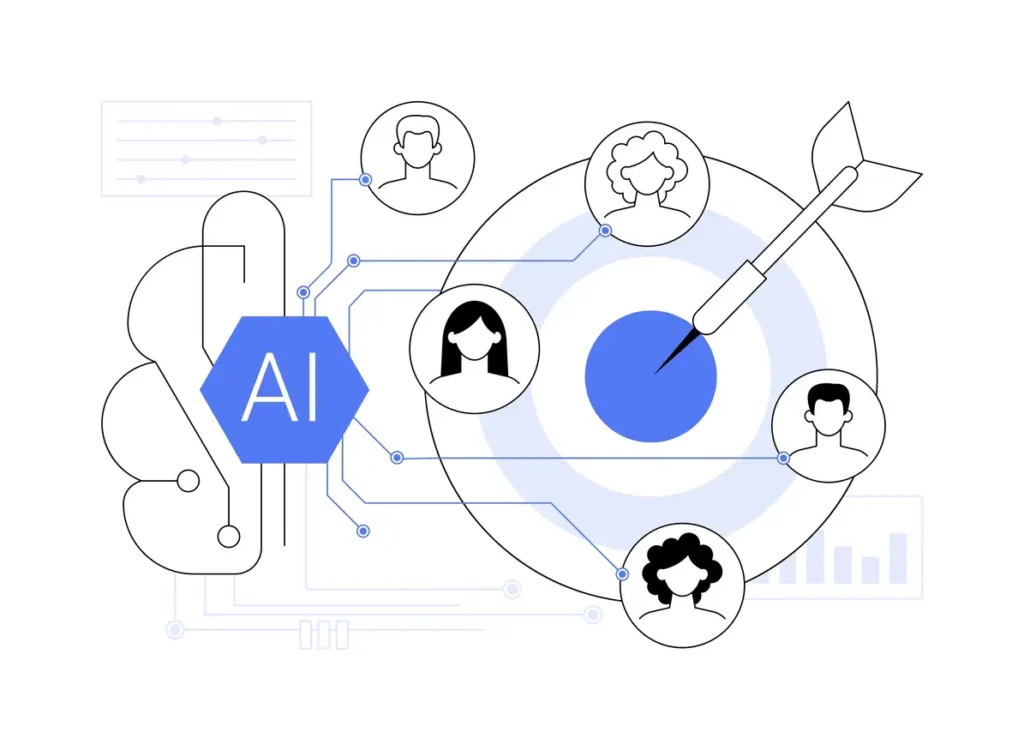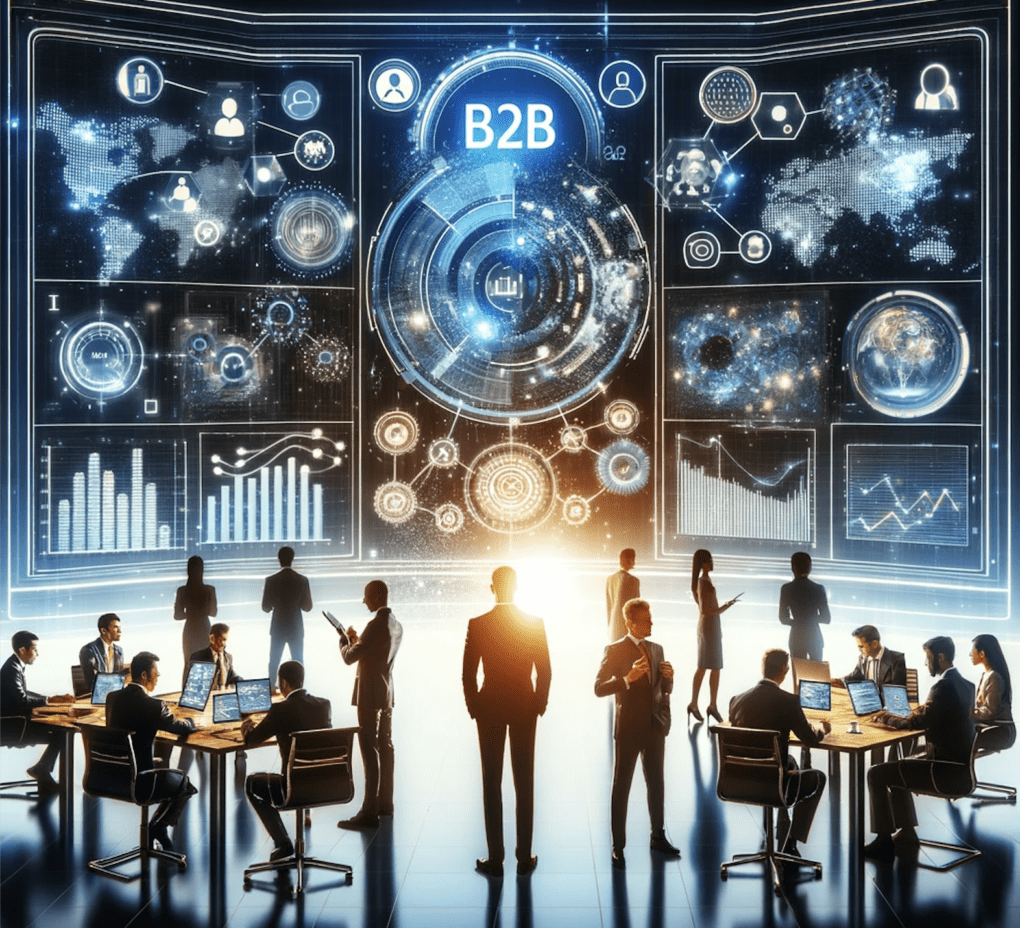Unlock Efficiency and Growth With AI Automation for B2B Firms
AI automation is transforming the landscape for B2B firms. It enhances procedures and reduces dependence on human intervention. This shift enables services to make quicker, data-driven choices. As organizations explore which refines to automate, they should likewise consider the right tools to execute. Challenges stay in taking on AI modern technology. The effects of these changes could form the future of several firms in methods yet to be fully comprehended
Comprehending AI Automation in the B2B Context
As organizations increasingly seek performance, recognizing AI automation in the B2B context becomes essential. AI automation entails employing sophisticated technologies to streamline operations, lower human treatment, and enhance decision-making processes. In the B2B landscape, this can materialize in various forms, such as automating customer care interactions, taking care of supply chain logistics, or enhancing advertising projects. Business can take advantage of AI to evaluate huge datasets quickly, allowing them to identify patterns and insights that educate critical options. Additionally, AI systems can incorporate flawlessly with existing innovations, giving a natural platform for handling organization features. This understanding lays the groundwork for companies to explore how AI can transform their procedures, boost efficiency, and inevitably foster sustainable growth in an affordable market.
Trick Advantages of Carrying Out AI Automation

Determining Procedures Suitable for Automation

Selecting the Right AI Tools for Your Service
When B2B firms take into consideration automating their procedures, picking the appropriate AI devices comes to be vital for accomplishing preferred end results. Firms need to start by reviewing their one-of-a-kind requirements and objectives, ensuring placement with service goals (Minarik AI). Examining the scalability, adaptability, and assimilation capacities of potential devices is essential, as these elements identify long-term effectiveness. Organizations must also think about user-friendliness and the degree of support supplied by vendors, as these components can affect effective implementation. Furthermore, assessing consumer evaluations and study can provide insights into just how certain AI remedies execute in real-world circumstances. By meticulously choosing AI devices that fit their functional demands, B2B firms can enhance performance and drive growth while reducing possible interruptions
Overcoming Challenges in AI Fostering
B2B companies commonly experience substantial difficulties in embracing AI innovations, particularly problems connected to information high quality and resistance to transform management. Poor information quality can prevent the efficiency of AI systems, while staff member unwillingness to accept new procedures can delay execution initiatives - AI Automation For B2B. Resolving these challenges is crucial for successful AI integration and maximizing its potential advantages
Data Top Quality Issues
Ensuring high information high quality is essential for the effective fostering of AI innovations in business-to-business environments. Imprecise, insufficient, or obsolete information can significantly hinder AI initiatives, resulting in incorrect insights and inadequate decision-making. Firms commonly encounter obstacles such as data silos, variances across various sources, and an absence of standardized data styles. To overcome these problems, organizations must spend in information cleaning, integration, and administration procedures. Applying robust data management methods assures that the info fed right into AI systems is dependable and relevant. In addition, fostering a society of data top quality recognition amongst workers can boost data accuracy gradually. By attending to information high quality issues, B2B firms can launch the full potential of AI automation, driving effectiveness and development.
Modification Monitoring Resistance

Measuring the Effect of AI Automation
Determining the impact of AI automation in B2B firms requires a clear understanding of essential performance signs (KPIs) that line up with business purposes. Effective information analysis strategies are vital for interpreting the results, while robust ROI evaluation techniques assist figure out the monetary advantages of automation efforts. With each other, these parts give a comprehensive structure for evaluating AI's payments to organizational success.
Trick Efficiency Indicators
Trick performance indicators (KPIs) offer as vital devices for B2B business to assess the performance of AI automation efforts. By establishing clear metrics, organizations can measure renovations in functional effectiveness, expense reduction, and profits growth straight attributable to automation. Common KPIs include cycle time reduction, mistake rates, client complete satisfaction scores, and staff member performance degrees. These signs offer understandings into exactly how AI systems are maximizing processes and improving total efficiency. In addition, tracking KPIs allows business to identify locations for additional enhancement and to line up AI automation efforts with calculated organization goals. Inevitably, a distinct structure of KPIs warranties that B2B business can quantitatively review the impact of AI automation on their procedures and drive continual development.
Data Evaluation Techniques
Reliable data evaluation techniques play a crucial function in evaluating the effect of AI automation within B2B business. By utilizing statistical techniques, organizations can recognize fads and patterns in functional information, enabling them to examine the efficiency acquires attained with automation. Strategies such as regression analysis and time collection forecasting offer insights into exactly how AI-driven processes affect productivity and decision-making. In addition, data visualization devices can efficiently communicate searchings for to stakeholders, helping with notified calculated decisions. Artificial intelligence formulas can better boost evaluation by anticipating future end results based on historical information, using actionable insights. Eventually, these methods make it possible for B2B companies to determine success and optimize their AI automation campaigns, making certain alignment with company purposes and boosting overall efficiency.
ROI Assessment Methods
Examining the return on investment (ROI) of AI automation is necessary for B2B companies looking for to recognize the monetary implications of their technological campaigns. Firms can employ different ROI assessment strategies to assess the performance of AI applications - AI Automation For B2B. One effective method entails computing expense savings by contrasting operational costs prior to and after automation (Minarik AI). Additionally, gauging productivity improvements via essential efficiency signs (KPIs) assists quantify the advantages of AI. Customer contentment metrics can also provide understandings into the effect of automation on solution high quality. To assure a detailed assessment, companies need to take into consideration both straight intangible benefits and monetary returns, such as boosted decision-making capacities and competitive benefit. This complex analysis allows B2B companies to make educated decisions relating to future investments in AI innovation
Future Fads in AI Automation for B2B Companies
What developments lie in advance for AI automation in B2B firms? Emerging fads show a substantial shift in the direction of boosted information analytics abilities, index allowing services to make even more informed decisions. Predictive analytics will certainly come to be progressively vital, allowing firms to expect market modifications and customer demands. Additionally, the combination of AI with Net of Things (IoT) modern technology is expected to enhance procedures by offering real-time insights and automation of processes. Business will additionally concentrate on enhancing consumer experiences with individualized advertising and marketing driven by AI formulas. Developments in natural language handling will certainly assist in better interaction between clients and services. As these trends evolve, B2B business must adjust to leverage AI automation effectively, making certain continual growth and competitive benefit.
Regularly Asked Inquiries
What Industries Advantage the A Lot Of From AI Automation in B2B?
Manufacturing, financing, healthcare, and logistics industries benefit the most from AI automation in B2B. These sectors leverage AI to optimize procedures, boost decision-making, and improve overall operational effectiveness, driving considerable development and technology.
Just How Does AI Automation Effect Staff Member Roles and Responsibilities?
AI automation reshapes employee duties and responsibilities by enhancing recurring tasks, allowing workers to concentrate on strategic efforts. This shift promotes ability growth, improves efficiency, and urges cooperation, ultimately driving organizational development and advancement.
What Prevail Misunderstandings Concerning AI Automation in B2B?
Usual misconceptions concerning AI automation in B2B include concerns of task loss, beliefs that AI can completely replace human judgment, and underestimating the significance of cooperation between AI systems and employees for optimal results.
Exactly How Can Services Make Sure Data Privacy With AI Automation?
Organizations can guarantee information personal privacy with AI automation by carrying out durable security procedures, sticking to regulative compliance, performing normal audits, and training staff members on information dealing with methods to reduce risks and secure delicate information.
What Are the Expenses Connected With Executing AI Automation?
The costs related to implementing AI automation include software acquisition, framework upgrades, training personnel, ongoing upkeep, and potential downtime during combination. Furthermore, companies might sustain costs connected to information safety and conformity actions.
Measuring the influence of AI automation in B2B business needs a clear understanding of key performance indicators (KPIs) that align with service purposes. Trick efficiency indicators (KPIs) serve as crucial tools for B2B companies to analyze the effectiveness of AI automation efforts. Effective information evaluation strategies play a vital role in reviewing the impact of AI automation within B2B business. Reviewing the return on financial investment (ROI) of AI automation is important for B2B companies seeking to understand the economic implications of their technical initiatives. What technologies lie in advance for AI automation in B2B companies?